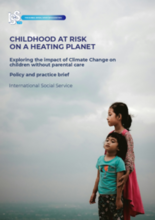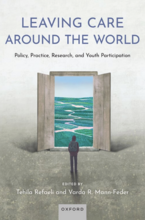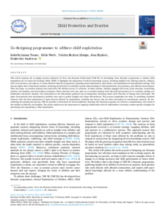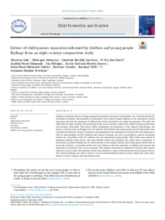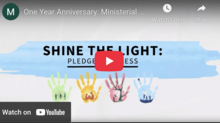Displaying 41 - 50 of 4431
Climate change is increasingly recognized as a child rights crisis, with children without parental care being particularly vulnerable to its impacts. This brief highlights how climate change heightens risks of losing parental care, creates unaccompanied children, and disrupts alternative care systems, and it offers recommendations for policymakers and practitioners to prevent separation and protect these children.
This book chapter examines the child welfare system, parental challenges, and family resistance, presenting a theoretical framework for building family resilience. It highlights stressors such as financial instability and mental health issues, and emphasizes collaborative, dignity-centered strategies that combine social work, mental health, and community support to improve outcomes for parents and children.
This book reflects two decades of work by the International Network on Transitions to Adulthood from Care (INTRAC) to advance academic research and policy reform on leaving care globally. It includes thirty-two country chapters, each providing background information and key statistics on children in care and care leavers based on available national data.
The Collaborative on Global Children’s Issues is excited to invite leaders on the front lines of preventing and responding to child-family separation to apply to be a part of&nb
This report examines how rising child poverty, social exclusion, and anti-rights movements across Europe threaten children’s rights, emphasizing the urgent need for collective action and strong civil society engagement. Focusing on vulnerable children, it reviews progress on the European Child Guarantee and broader rights issues—from mental health and protection systems to digital rights, housing, and social investment.
Date and Time: November 19th, 10:00am – 11:30am EST
This webinar, co-hosted by the Columbia University Seminar on Global Mental Health, examined how the shift toward localization is reshaping community-based child protection. The session explored both the challenges and opportunities of localizing child protection and well-being initiatives, emphasizing the need to transfer power to communities and support genuine local ownership for sustainable impact.
This article examines how Terre des Hommes Netherlands used a participatory co-design process to develop thematic programmes addressing sexual exploitation, child labour, and exploitation in humanitarian settings as part of its Listen Up! Strategy (2023–2030). By integrating insights from research, children, staff, and local partners through workshops, storytelling, and problem analysis, the process combined academic knowledge with lived experiences to create context-specific, evidence-informed interventions and Theories of Change.
This article presents research from eight countries showing that many child–family separations are preventable, with children and young people identifying common drivers of separation rooted in unmet basic needs and broader socio-economic pressures. The study concludes that strengthening laws, policies, and access to essential services—guided by the lived experiences of children—can help keep families together and reduce reliance on alternative care.
The anniversary event marking one year since the 2024 Global Ministerial Conference brought together global leaders, ministers, experts, and advocates to celebrate progress toward ending violence against children and to renew commitments for the y

